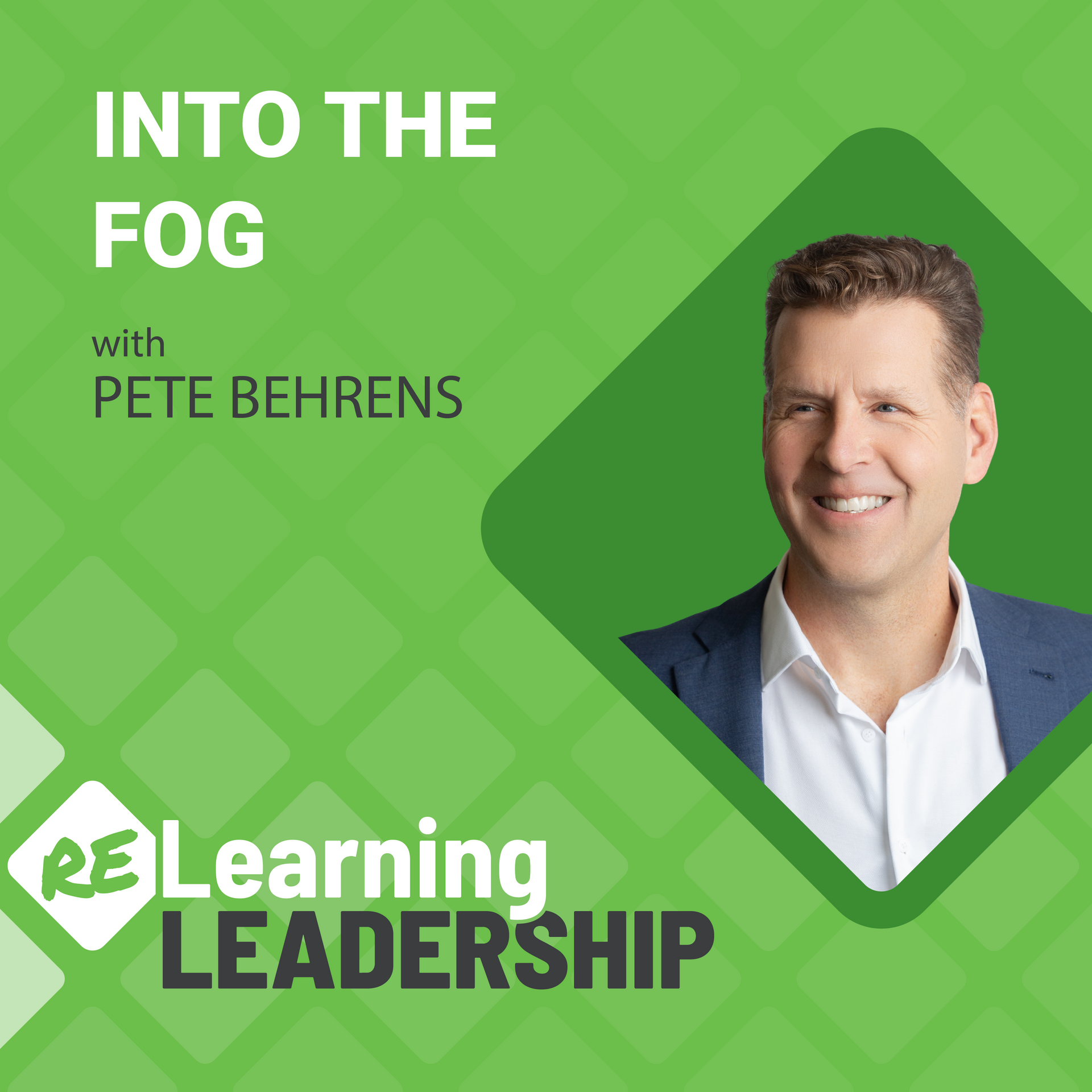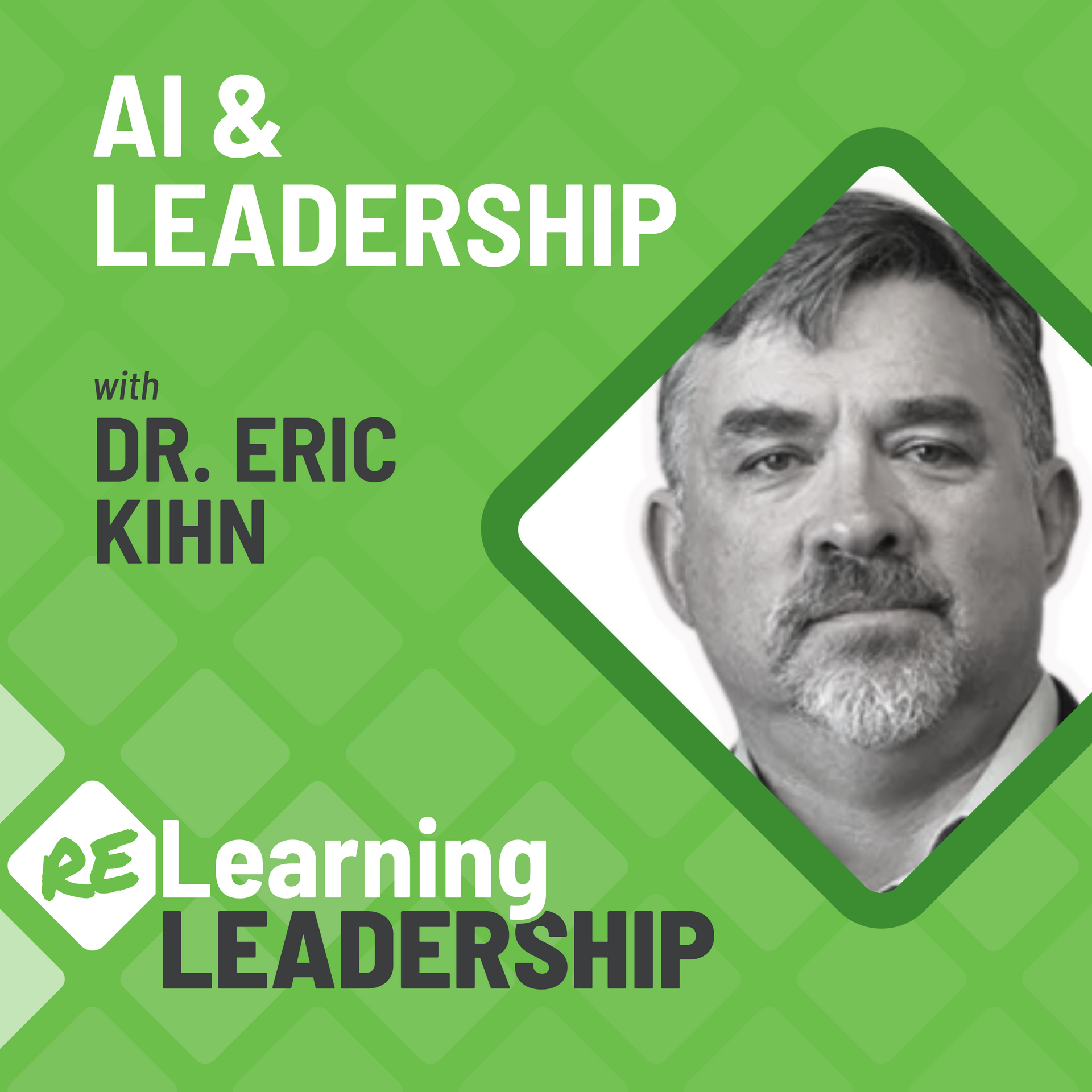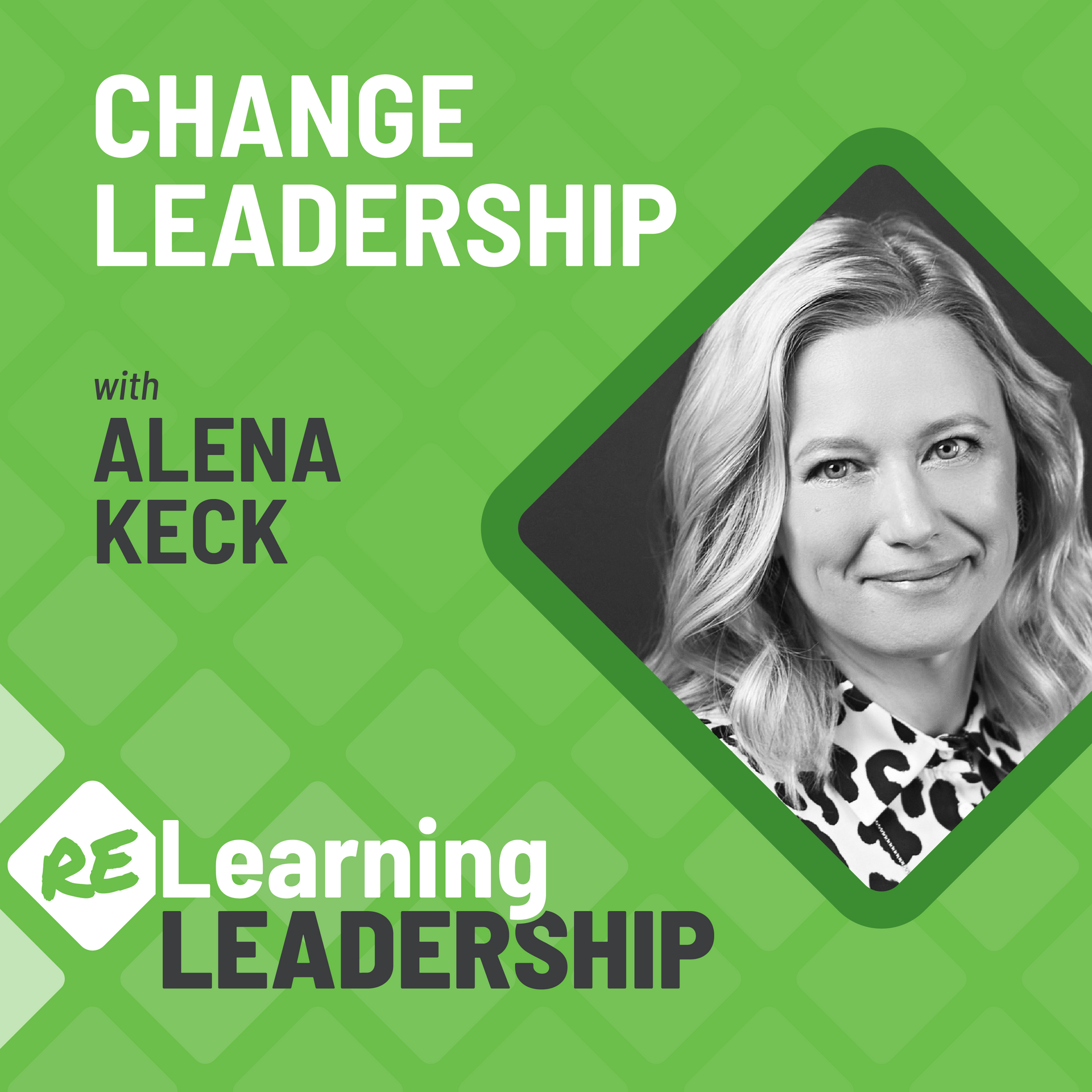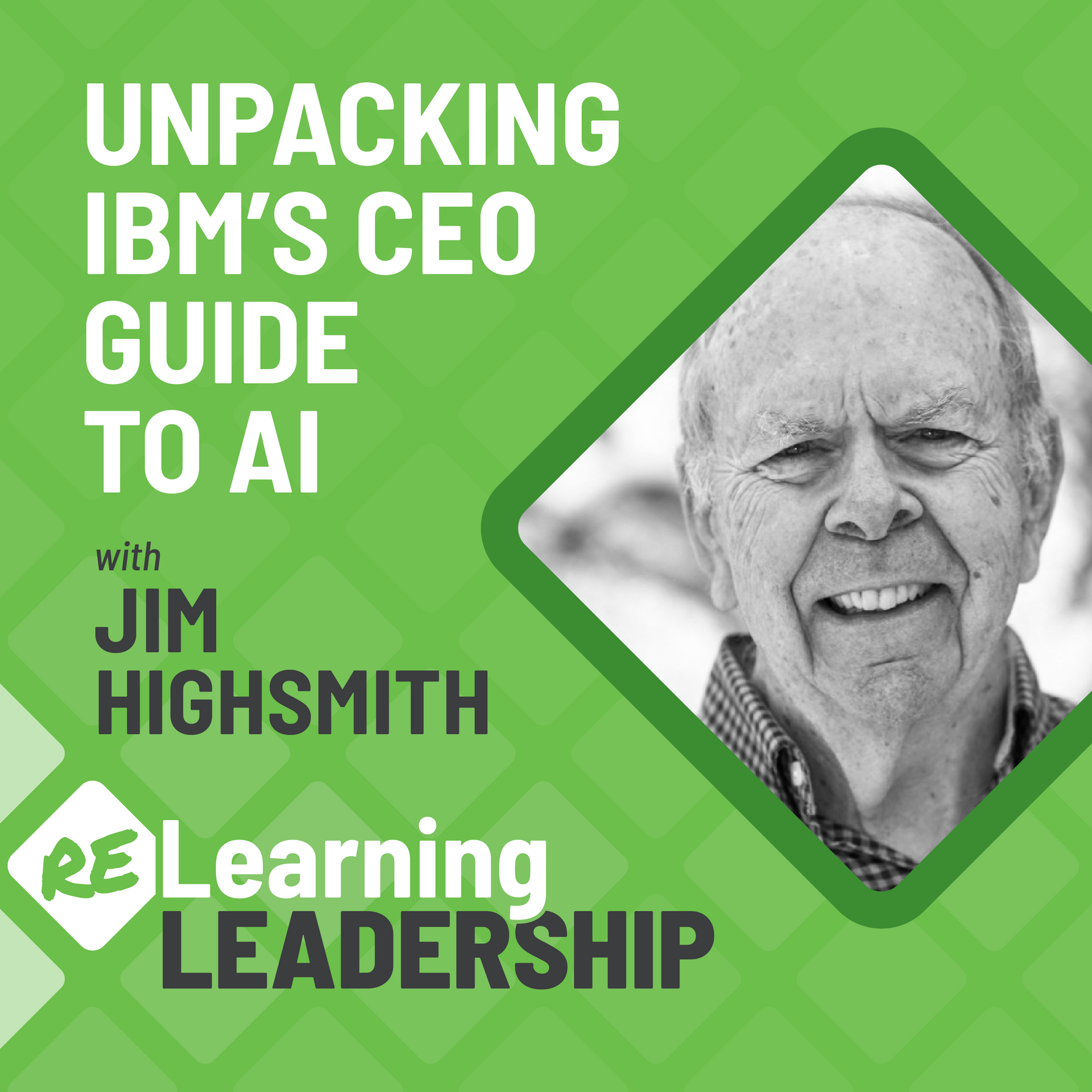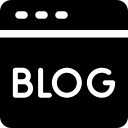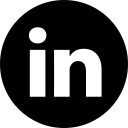23: Returning to the Office?
Is your company planning to return to the office?
When COVID-19 was officially declared a pandemic by the WHO two years ago, companies were forced to pivot to a work-from-home model literally overnight.
Most tech-based companies were able to make this shift relatively smoothly. As the dangers that the pandemic begin to wane, however, businesses are looking at returning to the office and what that looks like.
Working from home shed light on workplace culture — the good, the bad, and the ugly. What was learned and how can returning to the office be a transition that balances the flexibility of working from home with the benefits of in-person collaboration? We explore this and more in this episode.
Franco Chiaravalloti, ATS Project Manager
Franco is the Project Manager of the new Automatic Traffic Control System for the Metro of Brussels, Belgium.
This new system will improve the frequency and performances of the Brussels metro to serve the growing population and businesses of the "Capital of Europe". In his role within Hitachi Rail, Franco manages the continuous interactions with the client as well as the delivery of the system throughout its lifecycle — from the design and development stage, performed in Pittsburgh, Pennsylvania, to the Test and Commissioning on the Brussels site.
Connect with Franco

Von Rhea, Vice President of Software Engineering
Von is the Vice President of Software Engineering at Trimble, a global industrial technology solutions company. He has over 30 years in technology, project management and organizational leadership with Booz Allen, Corporate Express / Staples, and others.
Today, Von has responsibility for product development and engineering of a multiple product portfolio, with teams spread across 12 international locations.
Connect with Von
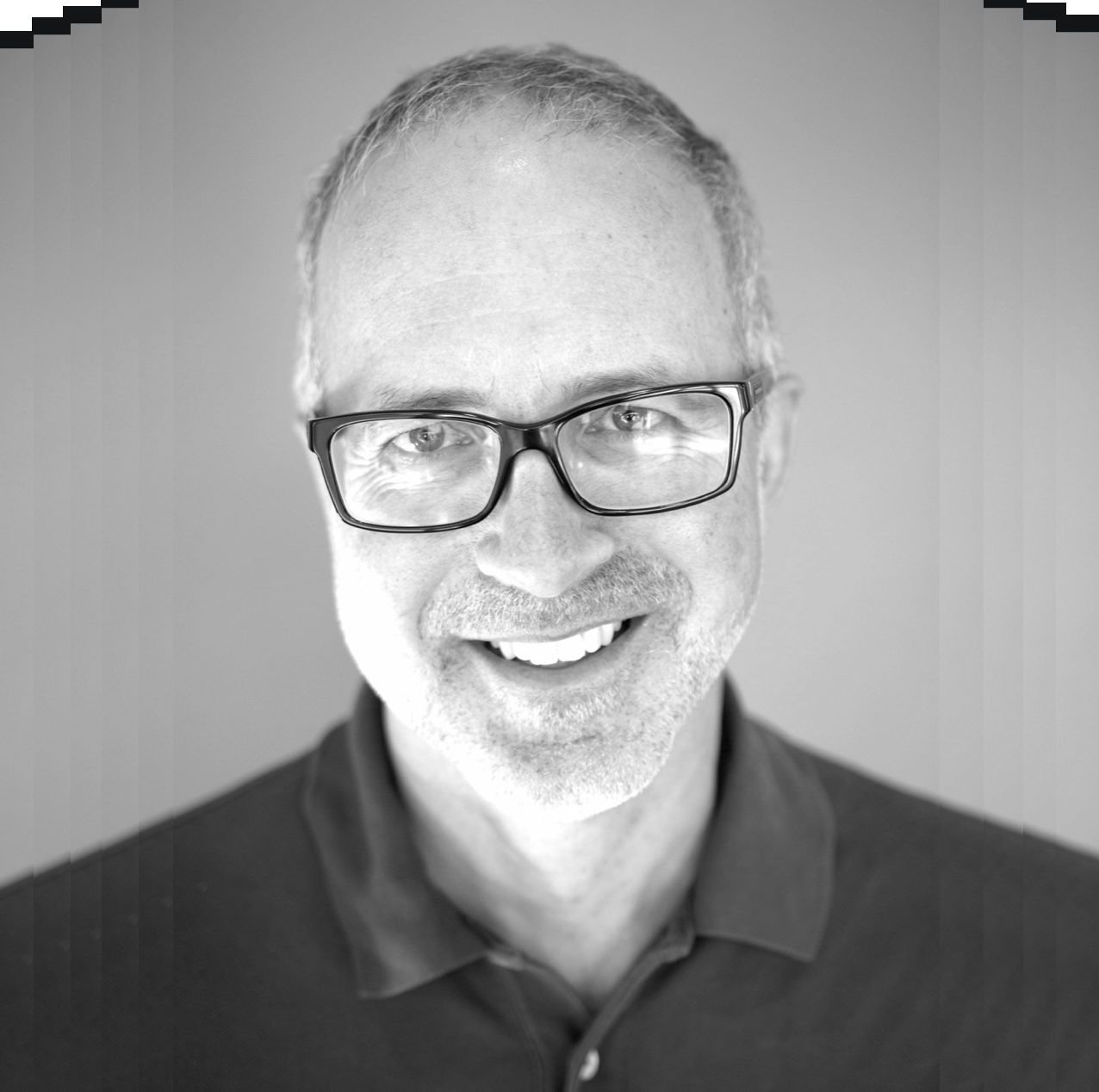
Relearning from this episode…
It was a pleasure to host Franco and Von for this brief discussion.
Here is what I hope for the post-pandemic office leader…
- I hope leaders learn to let go of the illusion that time in the office and butts in the seats equate to productivity.
- I hope leaders learn to respect the humanness of each employee and start from a place of trust.
- I hope leaders seek to co-create solutions for more flexible office arrangements to better enable work-life balance.
- I hope leaders reflect on the climate every time they commute or feel the desire to jump on an airplane or ask one of their employees to do the same.
- And I hope leaders keep alert to signs of burnout and create a safe space for employees to honestly share how they are coping.
We Celebrate Joy Zimmerman’s Milestone
Joy Zimmerman, the creator of the music you hear on this podcast, is celebrating an award-winning album this summer. The Canvas Before Us reached Top #8 on the International Folk Chart!
Today, I was drawn to her Caribbean love song
I Love You So (So). As I reflect on our past two years of the pandemic lockdown, the vision of laying at the beach, next to your loved ones, is quite attractive. I hope it is a reminder to all leaders that your employees’ life outside of work is likely more valuable to them than what you are offering. Enjoy
I Love You So (So).

Episode Transcript
Pete Behrens:
What will office culture be like post-pandemic?
Welcome to another episode of Relearning Leadership, where we explore a specific leadership challenge and break it down to help improve your leadership, your organization…and even your personal life.
Today, we explore the post-pandemic office. That is, when, and if, employees return. While some of us never left the workplace, most tech-enabled jobs have a completely different profile today. And joining me for this discussion are two leaders from such companies.
Franco Chiaravalloti:
We have to find a new meaning and a new
why for being in the office. Because we made it clear that we can make it work, 100% remote. So, why do we go back to work?
Von Rhea:
Think of all the small towns across the world that have been looking for the next big thing. And you think of all the people that are stressed living in a city, and maybe the work-life balance is for some of those people to move back to these smaller towns but bring a good job with them.
Pete Behrens:
That was Franco Chiaravalloti from Hitachi Rail Systems, living in Brussels, Belgium, and Von Rhea from Trimble, living in Denver, Colorado. Together, we explore the anxieties and the hopes of our return to the office.
I’m Pete Behrens. Thank you for joining us today. Let’s dive in.
Franco Chiaravalloti:
So, my name is Franco Chiaravalloti. I work for Hitachi Rail STS. I am a project manager for a technology called ATS, which is the central computer that regulates movement of the trains for the metro system in Brussels. And Hitachi is a global company, so this is a delivery center for Belgium, for Brussels metro, and the specifics. But the software is produced in Pittsburgh. And we were severely affected by COVID, not only because of the travel restrictions, but also because we were an agile company. And we had beautiful rooms packed with post-its, as it should be! And all of the sudden, that vanished. Or, I mean, that was taken over by mice, basically. And I'm looking forward to talking about the challenges of going back to work.
Pete Behrens:
So, it sounds like coming back to work, you're gonna have to evict the mice! That's awesome. [Laughs]
Franco Chiaravalloti:
Oh, yeah, that's a big part of the job, really. [Laughs]
Pete Behrens:
Von, how about you? Share a bit.
Von Rhea:
Von Rhea. I'm a vice president with the construction sector in Trimble. Trimble is an industrial technology company. And specifically, the division that I support creates construction software for the mechanical, electrical, and plumbing trades. And probably the reason we're on the podcast together is COVID wasn't as huge of an impact for us. I have teams in twelve locations around the world, from Europe to India to North America. And we had already been working remotely, so we were able to pick up and just keep going. But that also has some other challenges for returning to work as well. So looking forward to the discussion, Pete.
Pete Behrens:
So before we talk about returning to the office, I think it might be good to maybe set some stage. So it sounds like, with Franco, COVID had a significant impact in your work environment, and Von, not so much. So, maybe, just—each of you shared just a little bit of that perspective. What was that like? And then let's move to the second phase which is,
“Alright, what's next?”
Franco Chiaravalloti:
Well, for us, I can select the three topics. The first was the travel. We've always been a very travel-intense company. We were used to shipping people around the world very frequently, and that, all of the sudden, stopped. So we had to rely on remote desktops and rely much more on the people who were on site. And that perspective—it made us grow and get so much better at it.
The second aspect was the way we work as teams. We did have to come up with new tools because, really, the post-its weren't there anymore. You couldn't write on the wall. And so we migrated. But, to be fair, we were already starting before COVID because we had to share with the teams around the world. So COVID just accelerated that.
And finally, there is an aspect which is more related to the culture of the country where I come from, which is—trust that you are actually working. Italy is not a country of managers trusting people working from home. It's so 19th century, but it's like that still now. And so this idea that everybody is just working from home sent all the management, or most of it, in panic mode. Absolutely. And that's a bit of a shame, to be honest, because I was—I don't even know how to say it in English. But I thought it was amazing how my teams started to work remotely from one day to another. What was crystal clear was that the spectrum of effects on the way people were performing was extremely broad. From people that were really stressing out because they couldn't do anything, get anything done, to other people who said, “This is awesome! I'm not wasting two hours in the metro going to work and back every day. I can now exercise. I feel better. I can see my partner, maybe, a little more.”
Pete Behrens:
Von, you probably dealt with a lot of that as well with all the different countries you support. What was that like for your organization? You mentioned, overall, pretty easy. But yeah, share!
Von Rhea:
Yeah. You know, I think we have, again, twelve engineering locations around the globe. And so, we've always dealt with the issues of technology and time zones. And then out of the 220 people in the organization, a fair number of them are permanently remote anyway. They're in a location where we don't have an office. And a couple observations that really came up quickly is that for the first time, the folks that are permanently remote were complete equals to everybody else who used to gather in a conference room and dial in remotely. And they were actually mentoring and coaching some of the folks that, you know, as Franco said, might have been having their own struggles with how to do that. The engagement was a little bit choppy at first, but we have kind of a unique model where we do call on people. So if you're in a meeting, you do get called on. And so the engagement of our meetings actually rose a little bit as well, because it's very easy to lose yourself in a conference room when the conference TV is turned on. Not so much when that camera is right in front of you.
Pete Behrens:
Well, Von, you bring up an interesting point that's going to hit us now as we start to return to the office. And that is this concept of hybrid. And I know, as I taught online, one thing I refused to do is teach a mixture of some people in an office, some people online, because it's so disparate and so hard for both. If you have half your people coming into an office, and now we have others remote, do you tell everybody,
“Okay, go to your office. We're all going to dial in now because everybody can hear better.”
And I was just reading a New York Times article and they outlined American Express, you know, Facebook/Meta, Microsoft, Ford Motor, Wall Street Journal, New York Times—they were saying every one of these have a different strategy, a different timeline, a different approach. I think it just illustrated to me the vast range of possibility of coming back to the office. What are you guys talking about, you know, in those leadership meetings that worries you or just you have to consider as people are coming back to the office?
Von Rhea:
I think that there's a couple things, Pete. I think just recognizing the stress of people as they come back into the office. We may not actually be seeing the person that we saw two years ago, right?
They maybe, you know, have been through some trauma, or the world has just changed in two years. And so, being very respectful of that. I personally have been reading a ton of articles on—and it gets called different things, but making sure that just because someone comes in the office doesn't mean that they know more or get a different level of treatment than the folks that don't come in the office, right? And I think, by human nature, we're always attempting to go in that direction. And then, third, the area that I've just recently been spending a ton of time on is this topic of habits. So, it takes 30 days for us to learn a habit, right? And they always say if you can master something in 30 days, it's going to stick with you. Well, we have two years of 30 days, and so we have a lot of habits to go relearn for our people, for us as leaders, and for organizations. And so all of those habits have to either be relearned or unlearned.
Franco Chiaravalloti:
I think it's a great point. I can see it at home. I have two kids, six months old and soon to be four years old. And, you know, kids rely a lot on habits and routines. And, poor chaps, they don't understand what's going on. Because from one week to another—it's not a fixed scheme. So that brings on some surprises, like,
“Oh! I'm so glad to see you again.”
But also a lot of confusion, a lot of stress, a lot of unknown. Here in Belgium, some schools are still having half-time presence, half-time studying from home. Remote learning. And so many families still need to have someone at home to stay with their kids. So local policies have to be considered, and especially in global companies, as you said Von, I have people around the world. It's really important to check in and say,
“This is okay! Are you able to actually go back to the office?” And the other thing is that since we are in this transition period, still a lot of hybrid, we have to find a new meaning and a new
why for being in the office. Because we made it clear that we can make it work, 100% remote, because we are still delivering things. So, why do we go back to work? Is it only for the people who just go crazy because they have a small apartment? They live in Paris? You know, you live in a box, so you're happy to go to work! So we have to find another
why.
Pete Behrens:
It used to be,
“Well,
let's let's work at home one day, right? Work-at-home Fridays or, you know, casual Fridays.” I'm hearing rumors of the opposite:
“Okay, let's have collaboration days! Okay, so maybe once a week, maybe, you know, a couple times a month. Let's come together and work on some things that we can't do effectively remotely.” It's like that team creativity is missing? Right? We miss some of that when we're in Zoom calls. Maybe some thoughts on that?
Von Rhea:
Yeah, Pete. You know, I am in the office today, and so that's the third day this week. But it's been because we've had three days of brainstorming, and it's been a wonderful experience, right? White boards and stickies and scratching stuff out and saying,
“What about this option?”
All that we can do over the phone. But, you know, there is a sense of energy when you're in the same room that is really hard to replicate otherwise. And so one of the questions that's out there is—to get the value that Franco's talking about, who has to come in on those days? Because if you're really trying to go to these collaboration and redefining work in a new way, well, then that may mean that, you know, on Fridays there's nobody in the office. But on Wednesdays, you know, the entire office is in the building. So it's not just a clean,
“Yeah, everybody can pick two days to come in”
if you really want to build this collaboration culture and how to go about it.
Franco Chiaravalloti:
Absolutely. Absolutely. And interestingly, that's exactly what I've been doing in the last few weeks. Now that we had the opportunity to go, I just picked up three of the key team members and the project director. And I just said, “Guys, let's figure out—do you have preferences? If we decide that we all like to come on Tuesdays, for any reason, let's just try to do that.”
And also the other side is that I was much happier to see my colleagues now that I was seeing them only once a week, rather than when you see them every day at 8AM until 8PM, you know. They become a commodity. And so I was happy to see them and kind of make that day a good day. And I felt like if we were surfing this good-vibe wave of being there, we would be much more prone to make the best out of these moments. The office day, in my opinion, shouldn't sound like a corveé, like something that you gotta do because, you know, it's Wednesday. But I think there is the space to make it a cool day.
Von Rhea:
Our CEO has probably said it the best of anything that I've read. He said,
“There's 12,000 of you that have 12,000 ways to work, right?”
And it gets very hard to figure out
what hybrid actually means. Because for some people, you know, they want to come in from 8 to 10 every day of the week, right? Or, you know, maybe they want to work while their kids or at school from 10 to 12, you know? And so there's a level of personalization that needs to be balanced with, also, what the company wants to, or needs to be able to do to keep that innovation going forward, for sure.
Pete Behrens:
I was reading about Google's CEO, and I think they were praising his language. He said something about,
“Hey, the new working space is going to be flexible”, right? Not hybrid, but flexible. Like, you say,
“How do we flex to accommodate work life?”
And, yeah, sometimes maybe we need to push on the,
“Hey, let's come into the office!” Sometimes you flex the other way. I almost worry about those days in the office. Like you mentioned, Franco, you don't see anybody for a while. And then it's like, does that day become very distracting, like, very unproductive because everybody's socializing? And is that okay?
Franco Chiaravalloti:
Yeah, I, honestly—with my experience in a company in Italy, I felt that there was a huge amount of wasted energy for the opposite reason. It's a huge building, hundreds of people coming in. If you just want to gray yourself out and fade before someone figures out that you're not doing work, it's going to be weeks! And it's so insane. It doesn't make any sense, And so I'm thinking this flexibility—I think that it has the potential to help the people feel more engaged and question themselves about,
“How do I feel?
Do I feel really productive from 8AM to 4PM?”
Or I should really be jumping on a bike and bike for an hour and come back and get a good shower and start at 10, but actually start with a fresh mind and motivated and energized by the sport that I did. And I think these are the things that we can really leverage to get away from the absurd model of the strict 9 to 5, where you need to write to your manager to get out at 3 because you have the plumber coming home. What does this even mean? So I hope that this is really interpreted
by the managers as a great opportunity to actually recognize these differences and to encourage people to kind of bring their rhythm into the working day.
Pete Behrens:
This is reminding me of our last podcast episode,
The Illusion of Control. And I think, you know, you're getting at, Franco, the concept that it requires trust. You know, we have to step back and trust employees will do what they need to do, whatever time they decide to fit that work in. But that's a trust. That's a letting go of the illusion that time and togetherness means productivity. And I think that's a big step for many leaders and many cultures.
Von Rhea:
We have better processes to understand those folks that are struggling, for whatever reason, to not get their work done. And so, I think it is about, you know, kind of this
trust but verify.
And not verify in a monitoring sense, but really know your people and know what else is going on in their life and if there's a way to help them be more successful.
I do think that there is a huge amount of burnout because we haven't been able to respect the work-life boundaries in all instances. And so, if these flexible schedules help us address burnout, I think that that's good for the corporate world to really understand. Because your stress or your burnout could be because you have a three-hour commute. It could be because you can't get home in time for your kid to come home from school. It could also be that you're working twelve-hour days, you know, in the office, or even at home. And so we have to understand what works to that individual because burnout is a very real thing at the moment. And it's probably always been there. It's just maybe a little bit more noticeable now.
Pete Behrens:
Yeah, I'm hopeful people become more aware of the psychological health and the needs they have to be productive at work.
I'd like each of you, maybe, in closing here to share both a hope and an anxiety. What are you hopeful for in the next, you know, three to six months, in terms of getting back to the office? And what worries you the most about that?
Franco Chiaravalloti:
I am worried about going back to work, honestly, because
I'm worried about management trying to re-impose strict rules. And I'm worried about management trying to forget about this experience and not recognize what we have learned. I'm really worried, because—not only for the effects on me as a person, but because I'm afraid that all of our talents will <bloop sound effect> disappear. I don't think anybody is here to accept, to forget about these two years’ experience and go back to what it was before. So that's what I'm mostly worried about.
What I hope for is that through this post-lockdown era, we will be able to have better work-life balance. Because it was pretty broken quite often in the past. I heard about the importance of tuning in to work in the morning and then to disconnect in the evening. This is a beautiful concept for my parents, when you didn't have cell phones, WhatsApp, emails. When you didn't have colleagues all around the globe, this was perfect! But now? I used to have teams from Brisbane, Australia, all the way to San Francisco. Exactly at what time can I disconnect? So there is no such a thing in a fixed frame. There is only your will and awareness of the importance of disconnecting. I was sitting in the middle in Italy. The best time was to take two-and-a-half hours to go swimming, have a normal lunch between midday and 3PM. And that was really the best time. And then—
Pete Behrens:
—I think we call that the Italian lunch, don’t we?
Franco Chiaravalloti:
Yeah, plus the swimming and the games to counterbalance! [Laughs]
Pete Behrens:
Yeah. Yeah. Von, how about you? A hope and an anxiety, in whatever order you choose.
Von Rhea:
Yeah, let me go with the anxiety at the moment, because it's been very real this week. I don't know how to commute anymore. It's been very easy to wake up and hop on an early morning call, you know, with Europe. I'm in Colorado. And it's really tough to get into the office. I cannot figure out the new pattern. And then what really gets me anxious is nobody else who's commuting is used to it either. And so there's just this crazy mad dash in the mornings, in particular, of people trying to figure out how to get back in the office.
I think the other anxiousness that I have is—my entire team is software developers, testers, architects. And left to their own devices, they're all probably going to say they're fine staying at home and working. And humans are social creatures, and I don't want them to just do that. That won't give them the fulfillment in their career going forward. And yet, by the very nature of those of us who are software developers, we are going to be perfectly comfortable sitting in a room with the door shut. And maybe the—you know, just one little desk lamp and just coding away and doing our work. And the world doesn't quite work that way, for as much as we want it to.
I do have a huge hope. There is an energy when you're in the office again. There is this opportunity to make something different and grow, as long as we don't fall back in our ways of thinking. You can literally now work for any company anywhere, as long as that company has the right mindset and you have the right mindset on how to make that work. And it's going to take us a few years to understand the implications of that. But you think of all the small towns across the world that have been looking for the next big thing. And you think of all the people that are stressed living in a city, and maybe the work-life balance is for some of those people to move back to these smaller towns but bring a good job with them. The implication for the planet—right?—of all of us not driving in every day or taking public transport. That's a very real thing that we have to think about. And so, on the societal side, there is a huge hope on my part that work can help us solve some of those problems. If we spent no more energy on commuting, that would clean up, you know, a lot of the emissions, potentially, on the planet. And maybe we've learned that we can do some of that. So, pretty lofty goals!
Pete Behrens:
Well, I think you're both pointing to the fact that time won't go backwards. We're not going back to what it was. And I think if companies try, I think people will leave. And so, I think, for leaders out there, to me, the message here is: we've got to be creative. We've got to be flexible. We've got to find opportunities for that balance. And, you know, I think you guys have represented this challenge extremely well. You're both working in global organizations with global challenges and global opportunities. And just want to thank you both for sharing your insights and thoughts and concerns.
Von Rhea:
Well, Pete, I think your whole podcast series is so fascinating, and I love the different aspects that you're trying to research and be really insightful on. So thanks for the invite.
Franco Chiaravalloti:
Yeah, thank you so much. It was really, really interesting for me as well. And I really appreciate your perspective, Von, even from a societal point of view. Indeed, I changed my way of commuting. I'm now biking to work. And thanks to the fact that the number of bike lanes
were multiplied by ten here. No, really! It was a huge push
in a great direction. And, yeah, as an Italian, before I was thinking Belgium—bike! I'll be able to do it three days a year because it rains all of the time. The answer is yes! It rains all of the time, but you still can bike. [Laughs] So it's really pleasant to re-energize me as well.
Von Rhea:
That's great.
Pete Behrens:
It was a pleasure to host Franco and Von for this short discussion. But rather than sharing what I learned from this episode, I’d like to share what I hope for the post-pandemic office.
I hope leaders learn to let go of the illusion that time in the office and butts in the seats equate to productivity.
I hope leaders learn to respect the humanness of each employee and start from a place of trust.
I hope leaders seek to co-create solutions for more flexible office arrangements to better enable work-life balance.
I hope leaders reflect on the climate every time they commute or feel the desire to jump on an airplane or ask one of their employees to do the same.
And I hope leaders keep alert to signs of burnout and create a safe space for employees to honestly share how they are coping.
Thank you for listening today. And don’t forget about Joy’s gift, following the credits.
Relearning Leadership is the official podcast of the Agile Leadership Journey. It’s hosted by me, Pete Behrens, with analysis from our global Guide community. It’s produced by Ryan Dugan. With music by Joy Zimmerman. If you loved listening to this podcast, please leave us a review. And visit our website, relearningleadership.show, for guest profiles, episode references, transcripts, comments, and more. And to (re)learn more about your own leadership, visit us at agileleadershipjourney.com.
This season, we are celebrating Joy Zimmerman’s award-winning album, The Canvas Before Us.
Today, I was drawn to her Caribbean love song
I Love You So (So). As I reflect on our past two years of the pandemic lockdown, the vision of laying at the beach, next to your loved ones, is quite attractive. I hope it is a reminder to all leaders that your employees’ life outside of work is likely more valuable to them than what you are offering. Enjoy
I Love You So (So).
Explore:
Recent Episodes

